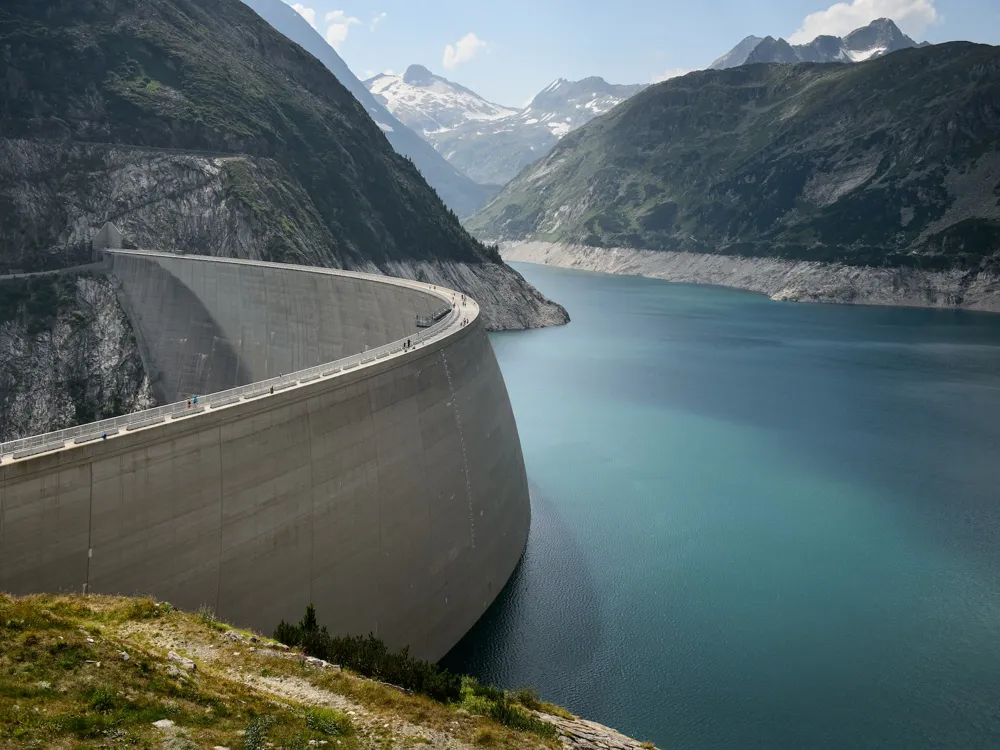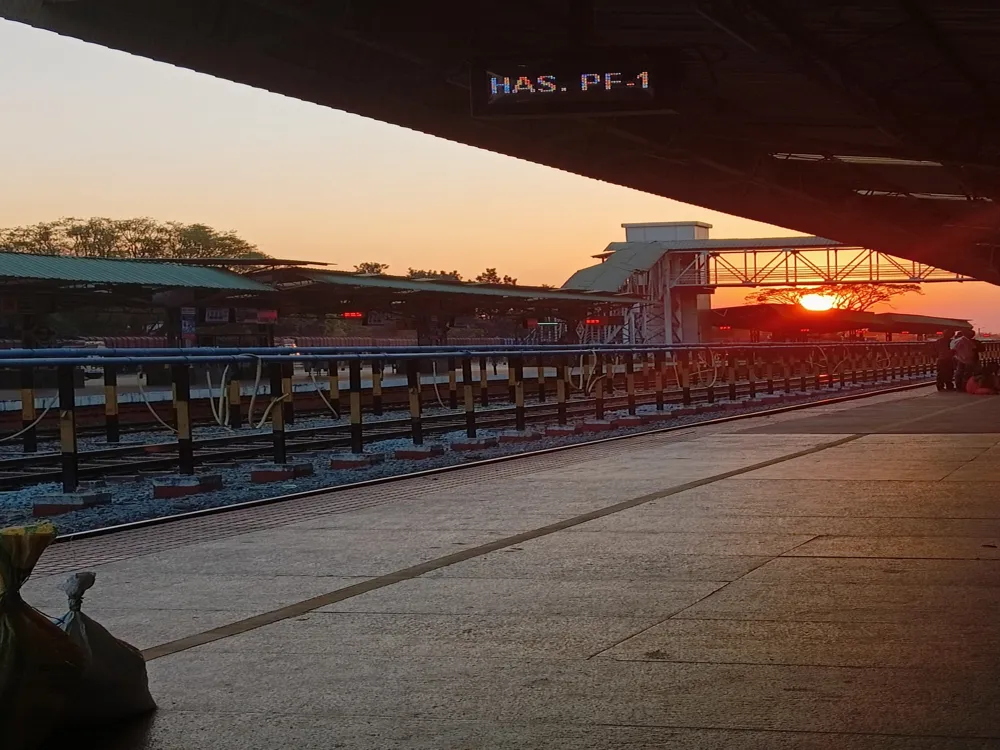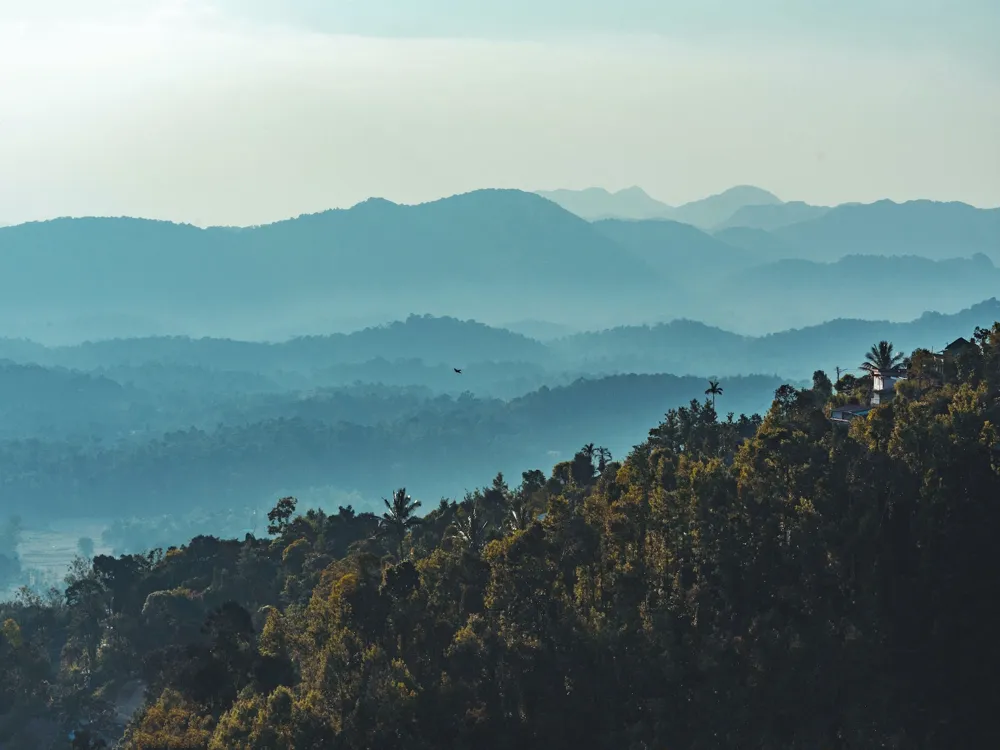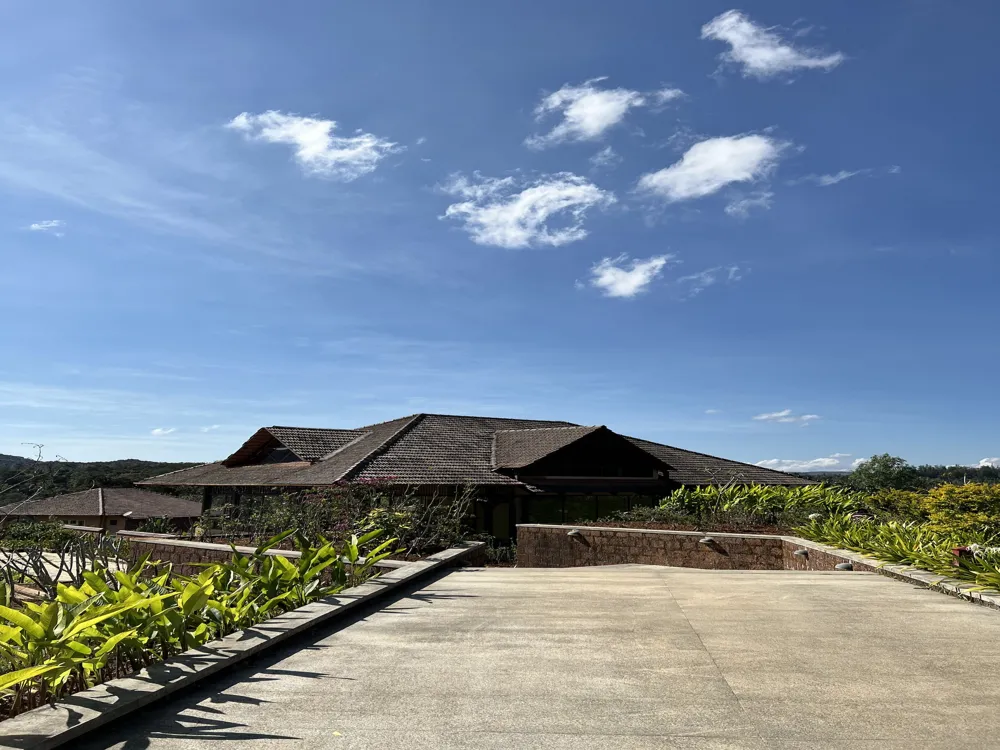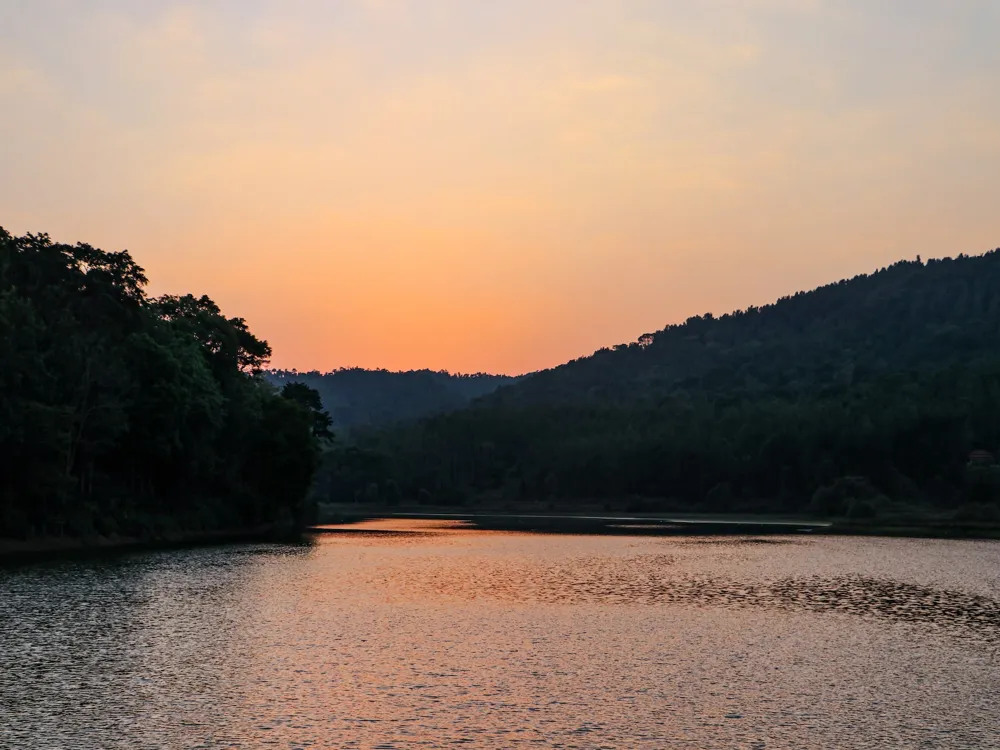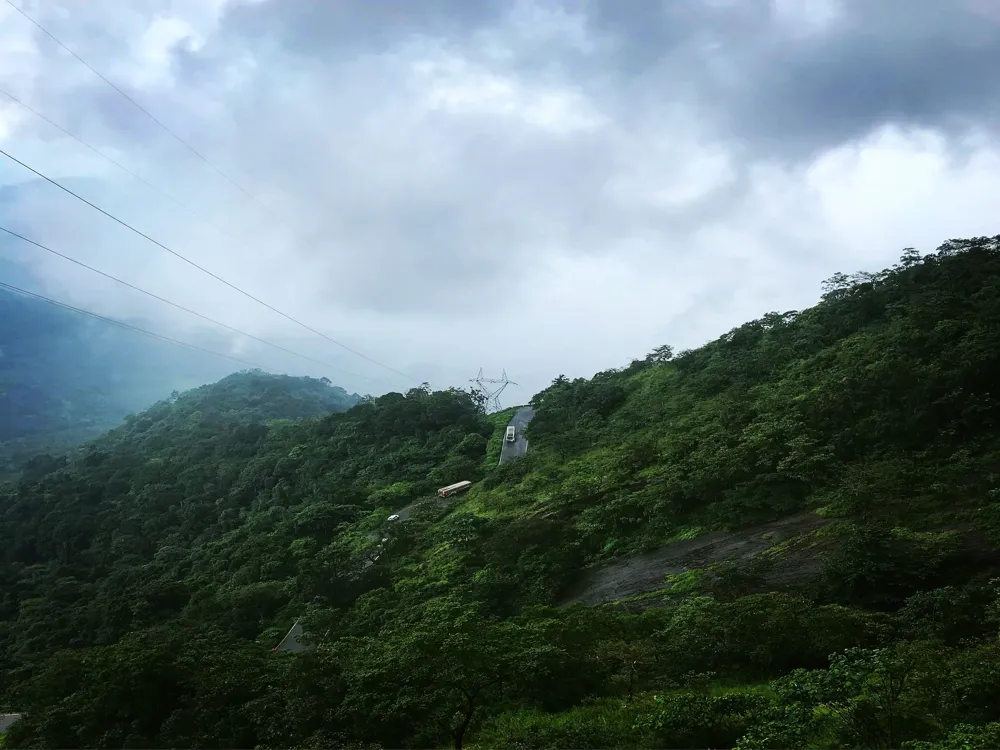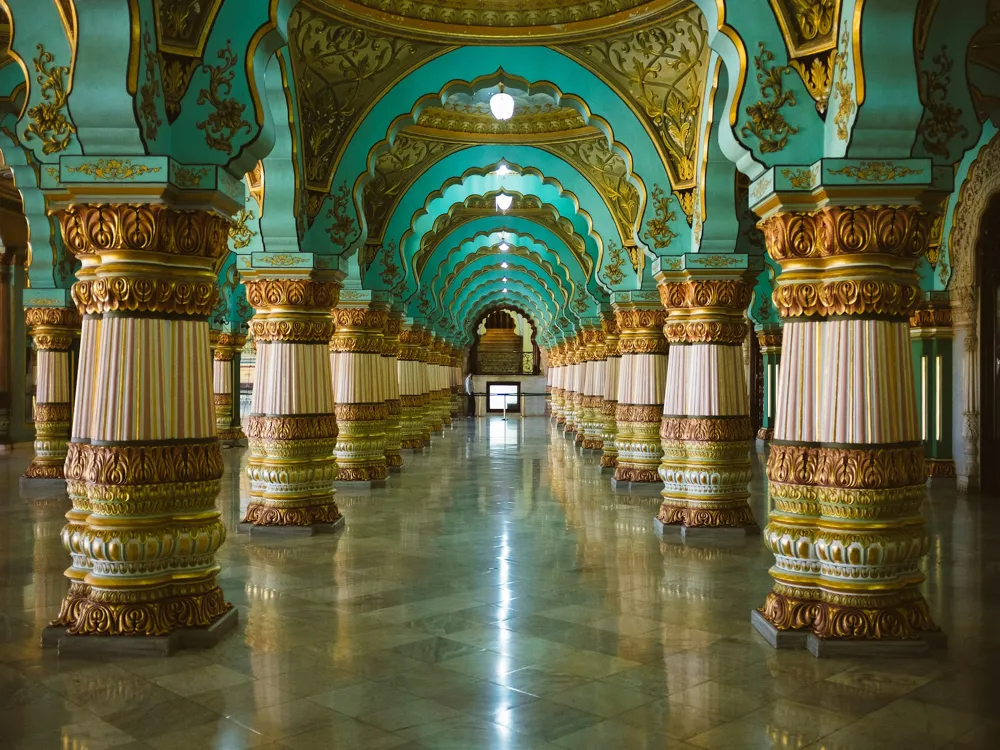The Ishvara Temple in Arasikere, nestled in the Hassan district of Karnataka, stands as a testament to the architectural prowess and spiritual heritage of India. Built during the Hoysala Empire in the 12th century, this temple is not just a place of worship but a symbol of the rich cultural and historical legacy of the region. The temple, dedicated to Lord Shiva, is renowned for its intricate carvings, detailed sculptures, and the unique star-shaped platform on which it stands. The Ishvara Temple's history is as fascinating as its architecture. It was built under the patronage of the Hoysala rulers, known for their contribution to art and architecture. This temple is a fine example of the transition in temple architecture during the Hoysala period, marking a shift from the earlier Chalukyan architectural style. The temple has withstood the test of time and continues to be a significant pilgrimage site, attracting visitors and devotees from all over the world. The architecture of the Ishvara Temple is a marvel in itself, showcasing the ingenuity of Hoysala artisans. The temple's layout is based on a detailed and complex design, reflecting both religious and artistic considerations. Its most striking feature is the star-shaped platform, which is not only aesthetically pleasing but also has a symbolic significance in Hindu temple architecture. The entire structure is adorned with intricate carvings depicting various deities, mythological scenes, and motifs of nature. The temple's interior is equally impressive, with a garbhagriha (sanctum sanctorum) housing a revered Shiva linga. The walls of the temple are covered with ornate carvings, each telling a story from ancient scriptures. The ceiling of the main hall features an elaborately carved lotus, symbolizing purity and spiritual awakening. The use of soapstone in construction has allowed for detailed carvings and has contributed to the temple's longevity. The temple's unique blend of architectural elements makes it a significant study for historians and architects alike. The star-shaped design of the Ishvara Temple is not merely an architectural choice but holds deep religious significance. This shape is believed to represent the cosmos and the eternal nature of the divine. The symmetrical design reflects the Hoysala's emphasis on balance and harmony in their architecture. Each corner and angle of the star shape is intricately carved, showcasing the artisans' attention to detail and their devotion. The sculptures that adorn the temple walls are replete with symbolism. From depictions of Hindu deities to scenes from epics like the Mahabharata and Ramayana, each sculpture tells a story. These sculptures also serve an educational purpose, narrating moral and spiritual lessons to the devotees and visitors. The fusion of art and spirituality is evident in every aspect of the temple's design. The choice of soapstone as the primary material for construction played a crucial role in the durability and intricate detailing of the temple's architecture. This soft stone allowed the craftsmen to carve delicate designs with precision. The construction techniques used by the Hoysalas were advanced for their time, involving interlocking methods and detailed planning, ensuring the temple's stability and longevity. As a place of worship and cultural significance, it is important to dress modestly. Traditional Indian attire is recommended, but at the very least, visitors should avoid revealing clothes and dress respectfully. While photography is allowed, it's crucial to respect the sanctity of the temple. Flash photography is generally prohibited inside the temple, especially near the deity. Always ask for permission before taking photos of people or specific areas within the temple. Consider taking a guided tour to fully appreciate the temple's history and architecture. Knowledgeable guides provide insights into the temple's significance, architectural details, and historical context that might be missed otherwise. Be mindful of local customs and practices. It's important to remove shoes before entering the temple and to follow any specific rituals or practices that are part of the temple's tradition. The best time to visit the Ishvara Temple is during the cooler months, from October to March. The temple is also particularly vibrant during festivals like Mahashivaratri when special rituals and celebrations take place. Arasikere is well-connected by road and rail, making the Ishvara Temple easily accessible to visitors. The nearest major city is Hassan, which is approximately 40 kilometers away. From Hassan, one can take local buses or hire taxis to reach Arasikere. The town also has a railway station, with regular trains connecting it to various cities in Karnataka and beyond. For international visitors, the nearest airport is in Bangalore, from where they can travel to Hassan by road or rail and then proceed to Arasikere. Read More:Overview of Ishvara Temple, Arasikere, Hassan, Karnataka
Architecture of Ishvara Temple, Arasikere
Significance of the Temple's Design
Symbolism in Sculptures
Materials and Construction Techniques
Tips When Visiting Ishvara Temple, Arasikere
Dress Appropriately
Photography Guidelines
Guided Tours
Local Etiquette
Best Time to Visit
How To Reach Ishvara Temple, Arasikere
Ishvara Temple, Arasikere
Hassan
Karnataka
NaN onwards
View hassan Packages
Weather :
Tags : Temple
Timings : 9:00 AM to 6:00 PM, Daily
Time Required : 1.5 hours
Entry Fee : None
Planning a Trip? Ask Your Question
Also Refered As:
Chandramouleswara Temple, Arasikere
Hassan Travel Packages
View All Packages For Hassan
Top Hotel Collections for Hassan

Private Pool

Luxury Hotels

5-Star Hotels

Pet Friendly
Top Hotels Near Hassan
Other Top Ranking Places In Hassan
View All Places To Visit In hassan
View hassan Packages
Weather :
Tags : Temple
Timings : 9:00 AM to 6:00 PM, Daily
Time Required : 1.5 hours
Entry Fee : None
Planning a Trip? Ask Your Question
Also Refered As:
Chandramouleswara Temple, Arasikere
Chandramouleswara Temple, Arasikere
Hassan Travel Packages
View All Packages For Hassan
Top Hotel Collections for Hassan

Private Pool

Luxury Hotels

5-Star Hotels

Pet Friendly





